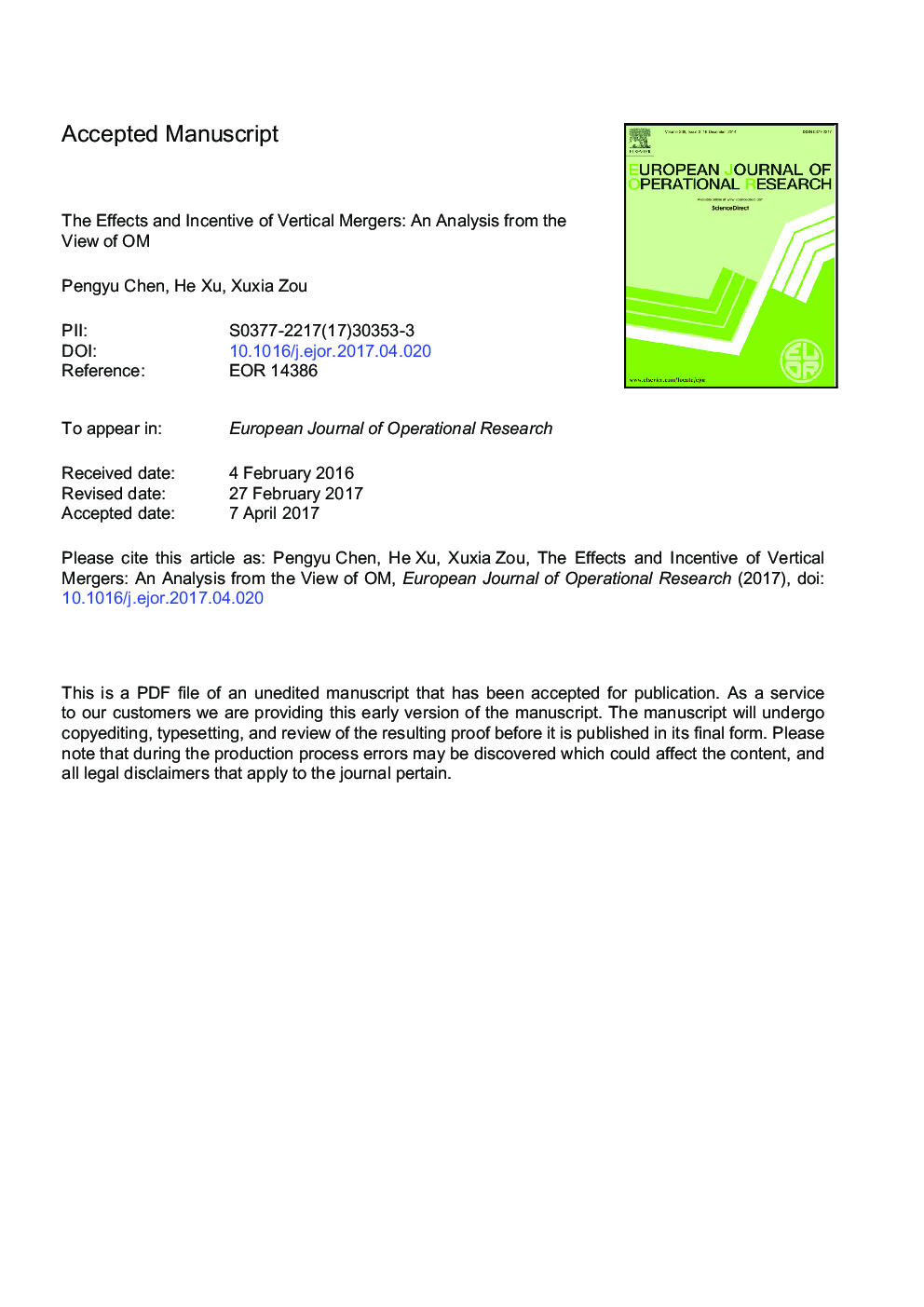| Article ID | Journal | Published Year | Pages | File Type |
|---|---|---|---|---|
| 4959610 | European Journal of Operational Research | 2017 | 39 Pages |
Abstract
We investigate the effects and incentive of vertical mergers in a supply chain with three types of firms (i.e. suppliers, manufacturers and integrated firms). Integrated firms can sell both intermediate and final goods, while suppliers and manufacturers can sell only intermediate or final goods, respectively. Whether selling intermediate goods to other manufacturers is introduced as the integrated firms' endogenous decisions. We find that a vertical merger always decreases the price of final products, both the production quantity and the profits of each unintegrated manufacturer and integrated firm, and most of the time leads to a drop in the total profit of the supply chain; while it always results in a rise in the quantity of final products and social welfare. Second, we find that market foreclosure only happens when competition among integrated firms is weak; and vertical mergers occur only when competition among unintegrated manufacturers is weak. Finally, we provide a theoretical explanation for the phenomenon of merger waves with the aid of our model.
Related Topics
Physical Sciences and Engineering
Computer Science
Computer Science (General)
Authors
Pengyu Chen, He Xu, Xuxia Zou,
